#ivan susanin
Text

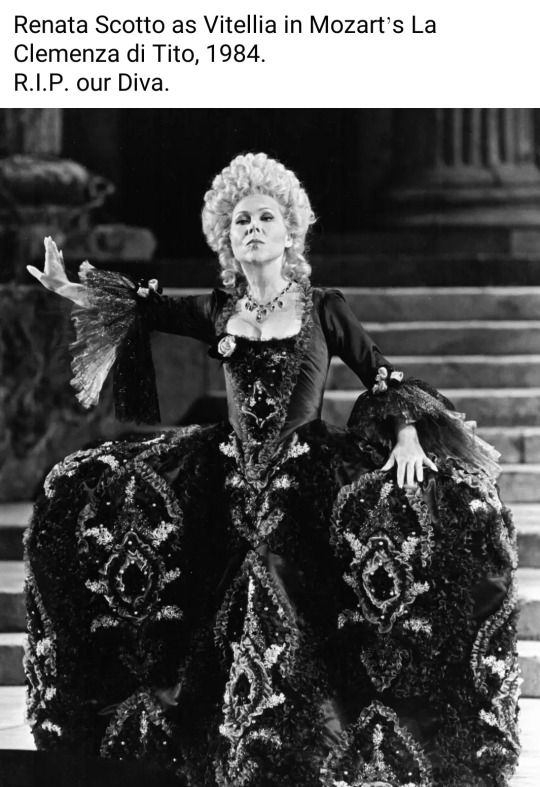

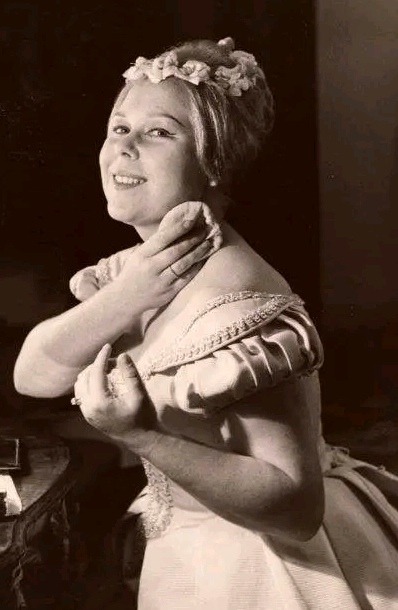
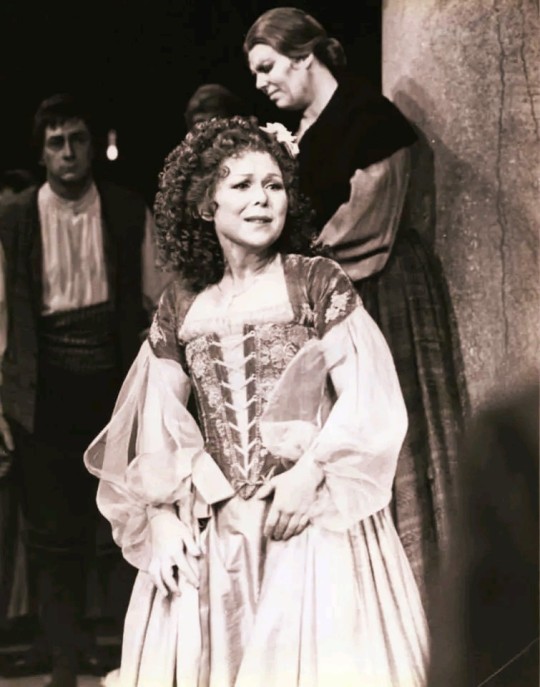



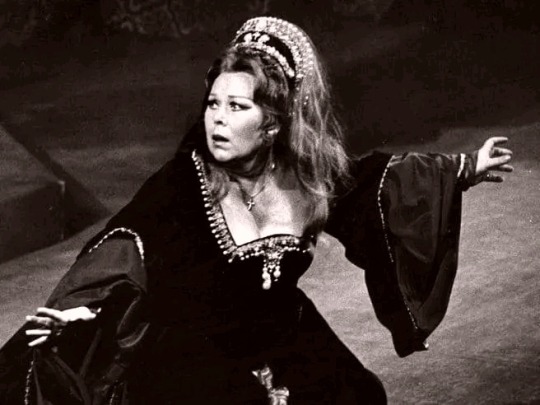

RENATA SCOTTO
as Vitellia in MOZART's *La Clemenza di Tito*, 1984 (ph 1&2)
IDEM
as Violetta Valery in VERDI's *La Traviata* (ph 3)
as Amina in BELLINI's *La Sonnambula* (ph 4)
as La Gioconda (PONCHIELLI) (ph 5)
as Lady Macbeth in VERDI's *Macbeth*
as Elisabetta di Valois in VERDI's *Don Carlo*
as Lucía in DONIZETTI's *Lucía di Lammermoor* Copyright ©️ Tamino Autographs
as Anna Bolena in DONIZETTI's opera of the same name.
in *Iván Susanin*
#4opera+love#4operalove#renata scotto#mozart#la clemenza di tito#giuseppe verdi#la traviata#bellini#la sonnambula#amilcare ponchielli#la gioconda#macbeth#don carlo#donizetti#lucia di lammermoor#anna bolena#ivan susanin
38 notes
·
View notes
Text

“A schoolgirl looks at the costume of Yeletsky from ‘Queen of Spade’ by Pyotr Tchaikovsky in Moscow during the ballet costumes exhibition that shows the costumes and decorations used since Mikhail Glinka's ‘Ivan Susanin’ in 1945 on. Bolshoi workshops celebrate its 225th annivesary end of March.”
Photographed by Alexander Nemenov.
25 March 2001.
32 notes
·
View notes
Text
Alexander Pirogov - Le veau d'or (Charles Gounod, "Faust")
Pirogov came from a family that boasted five sons. Four of them became singers, including Alexander's famous older brother, Grigori, also a bass. While the boys' father and grandfather both had fine voices, neither had pursued a professional career. At 15, Alexander's youthful voice simply disappeared one day. Although he was teased about the loss by his friends, his teacher insisted that someday Alexander would be singing at the Bolshoi. After the voice returned, Pirogov entered Moscow University and took singing classes at the Philharmonic School in Moscow. Following a period spent with a choral ensemble, he was engaged by the Zimin Free Opera in Moscow where, in two years time (1922 - 1924), he learned his craft and gained familiarity with several leading roles. In 1924, Pirogov was invited to join the Bolshoi. Soon he was heard as Gremin, Ivan Susanin, the Old Miller, Russlan, and Ivan the Terrible from the Russian repertory, in addition to such leading characters in Western opera as Don Basilio and Méphistophélès. The last named he reportedly learned in just two weeks. In 1929, Pirogov was honored by being assigned the title role in Boris Godunov; thereafter he was known as an unsurpassed interpreter of this mightiest of all Russian protagonists.
Establishing a reputation for hard work and meticulous attention to detail, Pirogov continued to sharpen and refine his interpretations. He arrived at the theater early, applying his makeup and stepping into costume long before he was summoned to the stage. Although many stories suggest an imperious presence in his personal affairs, others paint another portrait, revealing a friendly and outgoing approach toward his colleagues. Although he retired from the Bolshoi in 1954, Pirogov was the choice for Boris when the opera was filmed in 1955. He had already been awarded the Stalin Prize for his performance of the role and accompanied the film to Venice for the international film festival held there. Although the film was not a prizewinner, the Italian film academy struck a special medal to honor the singer.
After 1954, Pirogov spent most of his time in his native city, traveling to Moscow only for occasional appearances on-stage and in concert. When the Bolshoi was invited to La Scala in 1964, Pirogov was selected to sing Boris. However, after fishing in his beloved Oka River on a particularly hot day in late June, he returned home and retired for a nap. Awakening with chest pains in the middle of the night, he sent his son for a doctor, but by the time the physician arrived, the bass was already dead. Thus, Pirogov was denied the possibility of one final triumph.
#classical music#opera#music history#bel canto#composer#classical composer#aria#classical studies#maestro#chest voice#Alexander Pirogov#bass#Charles Gounod#Faust#Bolshoi Theatre#classical musician#classical musicians#classical history#history of music#historian of music#musician#musicians#diva#prima donna#Le veau d'or#La Scala
6 notes
·
View notes
Note
Hi HUNNY 🐝 3, 11, 16, 59!!
HEY SWEETIE 🖤
3: Grab the book nearest to you, turn to page 23, give me line 17.
[They scoured the area, learning that a peasant called Ivan Susanin knew where we were. While we the Great Sovereign were in Kostroma, the Poles and Lithuanians came into the region and Susanin misled them and they tortured him with great and immeasurable torments to get him to reveal where the Great Sovereign was. But Ivan, though he knew all about us, suffered but did not tell them so they tortured him to death.]
- The Romanovs by Simon Sebag Montefiore
11: Do you have any strange phobias?
I mean, I'm getting my arachnophobia under control but that's a very common phobia so.... slight haphephobia?
16: Simple but extremely complex. Favorite band?
Damn, i actually think this is pretty hard since i can never pick when it comes to music BUT I'm gonna say Fever Ray
59: Where were you yesterday?
Local Pub, me and the bartender have similar problems do we vent to each other instead of going to therapy PFFT
4 notes
·
View notes
Text
Novosibirsk State Academic Opera and Ballet Theatre
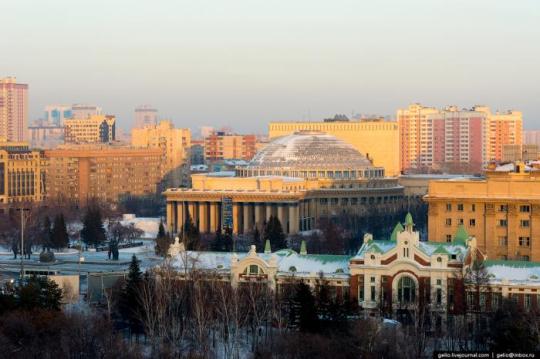
The Novosibirsk Opera and Ballet Theatre is the only theatre in the world to have been built during World War Two. It came from the unorthodox ideas of Russian architect Vsevolod Meyerhold, who would be executed in 1940 for his refusal to conform to Soviet ideals. In 1927, he proposed a “revolution in the field of theatre architecture, a leap over the objective data of today”, to design the projects “of the future, [projects] that will be possible in a hundred years.”
Those involved in the project wanted to create a massive, hi-tech theatre with “real sets”, where the cars, tractors, columns of demonstrators, or even tanks could enter the stage right from the street. Of course, they had to narrow their vision down a great deal, but the construction of the theatre was still a grand undertaking.
Construction was finished in February 1944, and the Novosibirsk Opera and Ballet Theatre officially opened on May 12th, 1945, only five days after the Germans surrendered, with a performance of Glinka's opera Ivan Susanin.

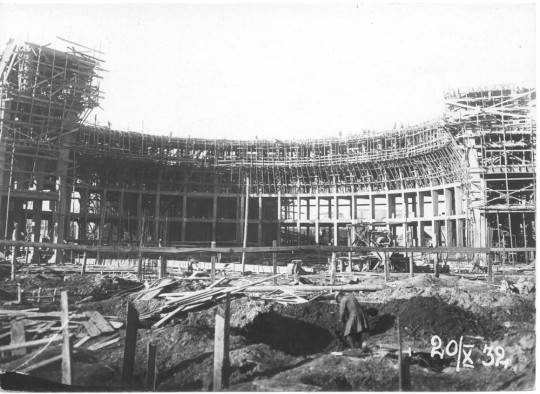



Construction of the theatre. (x)
Often referred to as the “Siberian Coliseum”, the Novosibirsk Theatre is the largest theatre in Russia. Its dome-shaped roof is 60 metres wide and 35 metres high. The auditorium itself can seat an audience of over 1,790, and the stage is 30 metres deep. Reproductions of Ancient Greek statues decorate the upper gallery.


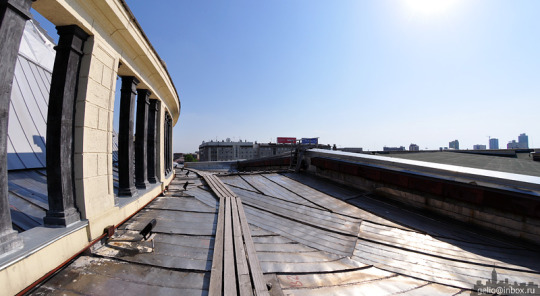


The dome. (x)

Upper gallery of the theatre.
#history#music#music history#architecture#military history#opera#glinka#ivan susanin#ussr#russia#siberia#novosibirsk#novosibirsk opera and ballet theatre#vsevolod meyerhold
57 notes
·
View notes
Photo
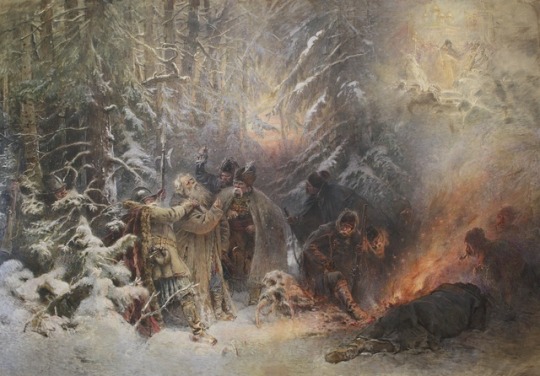



172/infinity of Konstantin Makovsky art
The Legend of Ivan Susanin
488 notes
·
View notes
Photo
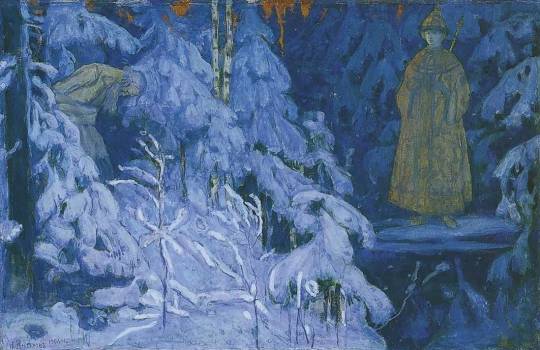
The vision to Ivan Susanin Michael's image, 1906, Mikhail Nesterov
https://www.wikiart.org/en/mikhail-nesterov/the-vision-to-ivan-susanin-michael-s-image-1906
28 notes
·
View notes
Text
Russian musicians known worldwide

1 of October – International day of music. Let's recall the great Russian musicians all over the time!
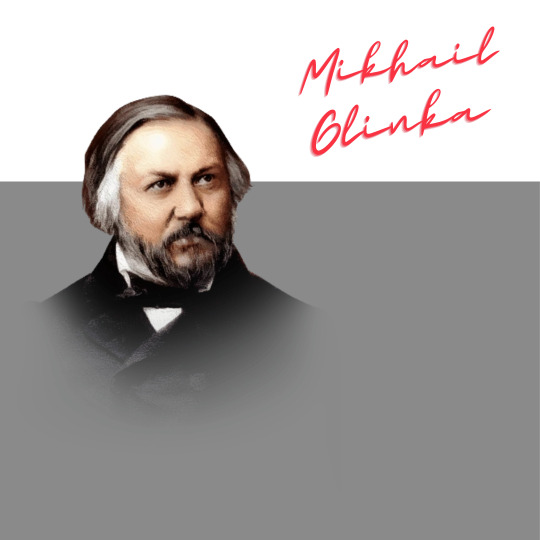
Mikhail Glinka
Mikhail Ivanovich Glinka was not only the founder of Russian classics. He was the first to achieve wide recognition abroad.
Thanks to his trip to Europe, which lasted several years, the great Russian composer absorbed the world experience.
Success overtook him after the release of the opera "Ivan Susanin" ("Life for the Tsar" – 1836) .
The second epic opera "Ruslan and Lyudmila" (1842) was not so warmly received by the audience. It was a difficult period in the composer's life, Russia was experiencing the death of Pushkin.
The opera was evaluated later, it turned out to be too innovative for the country of that time.
The composer himself felt the failure hard. He went abroad, where he continued to write, inspired by the motives of France and Spain.

Modest Mussorgsky
Was one of the group known as "The Five".
The whole Russian Russian history is reflected in his grand works — operas "Boris Godunov" and "Khovanshchina". There he showed the pages of Russian history in a way that no one had been able to do in Russian music before.

Pyotr Tchaikovsky
Academic skills and talent helped him become a world-class composer. Pyotr Ilyich Tchaikovsky combined the legacy of Mozart, Beethoven and Schumann with the Russian traditions inherited from Mikhail Glinka.
He was not only a composer, he worked as a teacher, conductor, critic, public figure, performed in two capitals, toured Europe and America.
Surprisingly, during Tchaikovsky's lifetime, his most famous and popular work today, the ballet Swan Lake, was not liked by the public and critics.
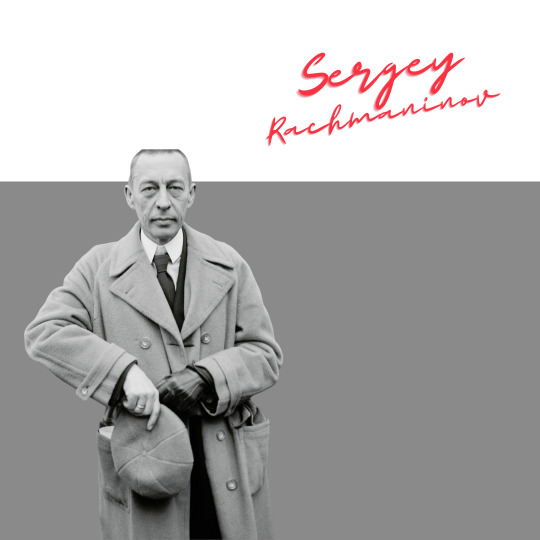
Sergey Rachmaninov
Sergei Vasilyevich Rachmaninov was called the most Russian composer. But he was not only a composer, but also a virtuoso pianist and conductor.
Following the Russian Revolution, Rachmaninoff and his family left Russia. They settled in New York City in 1918. With his main source of income coming from piano and conducting performances, demanding tour schedules led to a reduction in his time for composition. Between 1918 and 1943, he completed just six works, including the Rhapsody on a Theme of Paganini, Symphony No. 3, and Symphonic Dances.
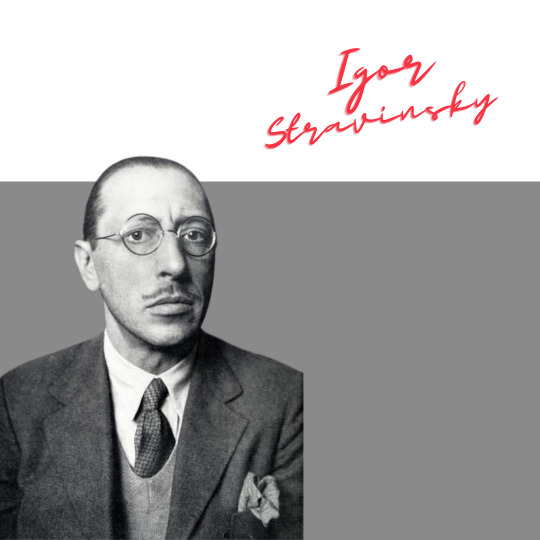
Igor Stravinsky
Igor Fedorovich Stravinsky became the leader of neoclassicism in music. He freely combined genres, forms, styles, choosing them from centuries of musical history and subordinating them to his own rules.
A series of three ballets: "The Firebird" (1910), "pEtrushka" (1911) and "Sacred Spring" (1913) instantly brought Stravinsky into the ranks of composers of the first magnitude.
One unique feature stands out in Stavinsky's work — "non-repeatability", he was called "the composer of a thousand and one styles". His works are distinguished by the constant change of genre, style, and direction of the plot. Russian Russian was a cosmopolitan and lived in many countries, but he always thought, "I've been speaking Russian all my life, I have a Russian syllable. Maybe it's not immediately visible in my music, but it's embedded in it, it's in its hidden nature."

Dmitry Shostakovich
Dmitry Shostakovich is the most performed Russian classical composer. The greatness of his work lies in the fact that a person's personal tragedy is intertwined in him with the fate of the whole people, the stories that he told in the language of music were emotional and vivid.
#russian culture#music#composer#musicians#classical music#culture#russia#soviet#international music#conductor#fortepiano#pianist#tchaikovsky#igor stravinsky#dmitri shostakovitch#shostakovich
16 notes
·
View notes
Text



Feodor Ivanovich Chaliapin February 13 [O.S. February 1] 1873 – April 12, 1938) was a Russian opera singer. Possessing a deep and expressive bass voice, he enjoyed an important international career at major opera houses and is often credited with establishing the tradition of naturalistic acting in his chosen art form. His vocal teacher was Dmitri Usatov (1847-1913). Chaliapin began his career at Tbilisi and at the Imperial Opera in Saint Petersburg in 1894. He was then invited to sing at the Mamontov Private Opera (1896–1899); he first appeared there as Mephistopheles in Gounod's Faust, in which role he achieved considerable success. With Rachmaninoff he learned the title role of Mussorgsky's Boris Godunov, which became his signature character. On the strength of his Mamontov appearances, the Bolshoi Theatre in Moscow engaged Chaliapin, and he appeared there regularly from 1899 until 1914. During the First World War of 1914-1918 Chaliapin also appeared regularly at the Zimin Private Opera in Moscow. In addition, from 1901, Chaliapin began touring in the West, making a sensational debut at La Scala that year as the devil in a production of Boito's Mefistofele, under the baton of one of the 20th century's most dynamic opera conductors, Arturo Toscanini. At the end of his career, Toscanini observed that the Russian bass was the greatest operatic talent with whom he had ever worked. The singer's Metropolitan Opera debut in the 1907 season was disappointing due to the unprecedented frankness of his stage acting; but he returned to the Met in 1921 and sang there with immense success for eight seasons, New York's audiences having grown more broad-minded since 1907. In 1913 Chaliapin was introduced to London and Paris by the brilliant entrepreneur Sergei Diaghilev (1872-1929), at which point he began giving well-received solo recitals in which he sang traditional Russian folk-songs as well as more serious fare. Such folk songs included "Along Peterskaya" (which he recorded with a British-based Russian folk-instrument orchestra) and the song which he made famous throughout the world: "The Song of the Volga Boatmen". In 1925, when he performed in New York, his piano accompanist was a young Harry Lubin (1906-1977), later to become a composer of music for the television series The Outer Limits. His most famous part was the title role of Boris Godunov (excerpts of which he recorded 1929–31 and earlier). He is remembered also for his interpretations of Ivan the Terrible in Rimsky-Korsakov's The Maid of Pskov and Salieri in Mozart and Salieri, Mephistopheles in Gounod's Faust, Don Quixote in Massenet's Don Quichotte, and King Philip in Verdi's Don Carlos.Largely owing to his advocacy, Russian operas such as Mussorgsky's Boris Godunov and Khovanshchina, Glinka's Ivan Susanin, Borodin's Prince Igor and Rimsky-Korsakov's The Tsar's Bride and Sadko, became well known in the West. Chaliapin's last stage performance took place at the Monte Carlo Opera in 1937, as Boris.
#Feodor Chaliapin#Charles Gounod#Faust#Modest Mussorgsky#Boris Godunov#Bolshoi Theatre#Arrigo Boito#Mefistofele#La Scala#Teatro alla Scala#Metropolitan Opera#Nikolai Rimsky-Korsakov#don quixote#Jules Massenet#Don Carlos#Giuseppe Verdi#Царская невеста#Prince Igor#Sadko#Monte Carlo Opera#Mariinsky Theatre#Gioachino Rossini#Il barbiere di Siviglia#Don Giovanni#Wolfgang Amadeus Mozart#Covent Garden#Royal Opera House#Richard Wagner
26 notes
·
View notes
Text
Russian hero ivan susanin would easily be felled by thje weakest baby orangutan in sumatra
4 notes
·
View notes
Photo
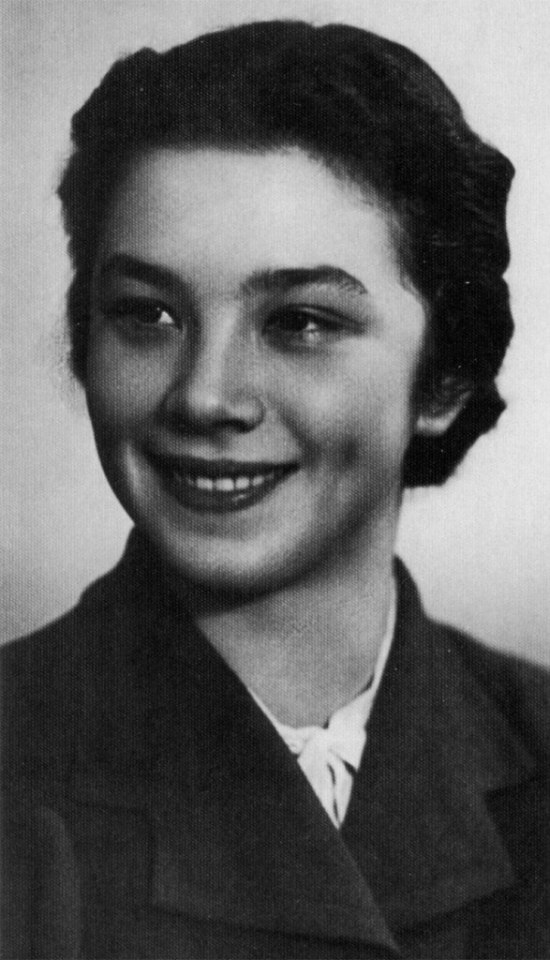

Vaganova Ballet Academy professor, Irina Gensler, turns 90 today (July 22, 2020)!
Gensler studied at the Vaganova Ballet Academy (then the Leningrad Academy of Choreography), under Agrippina Vaganova herself. Upon her graduation in 1948, Gensler joined the Mariinsky Theatre (then Kirov Theatre). She stayed with the company util 1981.
This photograph shows Irina Gensler (foreground) in Agrippina Vaganova’s class:

During her professional career, Irina Gensler came to be regarded as a virtuoso character dancer. She has been teaching character dance at Vaganova Ballet Academy since the 1970s.
In 2016 and 2017, Nikolai Tsiskaridze engaged Gensler to help re-stage the Polish Ballet from “Ivan Susanin” and “The Hungarian Rhapsody” (respectively) for the academy’s graduation performances.
A short documentary about Gensler (English dubbed):
youtube
38 notes
·
View notes
Text
I still finished DRAMAtical murder, sorry, there was nothing catchy in episode 4-8, so I will continue from 8 to 12 + ova
the arch of Noiz was of course sad, but the arches of Clear and Ren are just something unimaginably awkward.


I was very sorry for Clear, honestly, this is the only episode when he did not annoy me with his “Master! Master!" and it was shown from the other side at last. the moment when he sang a song, stopping his "brothers"> than everything else
I can't even find words how powerful it was.
I don't respect Mink, but his words about Aoba being naive is fucking true. He's naive that fucked up, if Mink are an the Battle on the Ice, there is a war, explosions and all that, then Aoba is Ivan Susanin who took us all into the swamp and we died there.
REN'S ARCH. while girls just call the hearse. when Ren disappeared, I burst into tears and sat there crying for another ten minutes, even when he was returned in another body. Ren was always with us, in every episode, and his absence hurt me soooo much. Ren, in my humble opinion, deserves this whole life. Ren marry me please drop this Aoba really I'm sitting here grab and run


and finally OVA. God knows I will go to sin. I roughly know what is happening in the game and what kind of movement there is, but BUT that's why I thought that in the end everyone went crazy. Ova was deposited in my head.

there are such mixed feelings. The most fucking bad ending seemed to me the endings of Noiz and Ren (my favorites boys😭), but I liked Mink's ending, which is generally strange, because I don't perceive him as a person.
I understand that Aoba, according to the plot of the game and the anime, is a good-natured boy, an angelic voice, but to be patient when you feel bad is the height of idiocy in general, go get some treatment. and it's bad that in adaptation it is somehow fucking justified. in short, a bad ending with Mink - cool, other endings limp
keep cutie Noiz and be done with this

#anime#anime memes#anime edit#anime review#anime style#picture#aesthetic#dramatical murder#aoba seragaki#noiz#koujaku#mink#clear#thread
11 notes
·
View notes
Text

Иван Сусанин | Ариозо https://arioszo.ru/ivan-susanin/
1 note
·
View note
Photo

Vladimir Tatlin (1885 - 1953) Costume Design For A Life For The Tsar (Ivan Susanin), 1913 (45.5 by 30.5 cm)
5 notes
·
View notes
Text
The prima ballerina assoluta, as the press in the West had dubbed her back in 1910, fought physical decline and overindulged in lipstick, powder, and eau de cologne. Her vision began to fail, and she died blind, having spent her final two years “sitting too close” to a television that she pretended to hate.
Her heart remained with Mannerheim, but her career belonged to Tikhomirov, who doted on her until he died, six years before her. She wrote to him in 1939 from a booking in Krasnodar. She had pushed her tired limbs through the mazurka from A Life for the Tsar (renamed Ivan Susanin) and, on special request, something from Swan Lake. It was the worst of times in terms of arrests, confiscations, disappearances, and ideological thought control. She retreated, describing the evening as would a little girl. The bouquets were lovely, the stage nice and clean, her room was warm, and the linens fresh.
From Krasnodar, she went to Stalingrad, formerly Tsaritsïn, to perform in another concert in another House of the Red Army. Her apartment was searched when she returned, and the letters from Mannerheim confiscated, likewise two portraits of him by Silver Age painters. The Soviet-Finnish War had begun, and Geltser had been caught staring at pictures of a Soviet people’s enemy. Fate saved her from arrest. Fifty-seven years later, in 1997, a nephew of hers living abroad sent a letter to the Bolshoi Theater Museum in which he brought to light both the search and Geltser’s subsequent efforts to liquidate her personal archive. He added, perhaps in the form of a complaint, that the location of the “fifteen hundred letters” Geltser received over the course of her life is unknown.
She had no students to define her career for her, and so she had to define it herself. In 1949, she reminded Tikhomirov of their mutual joys and sorrows, and how they both had “suffered” in defense of “pure” art. That word—“pure”—finds Geltser rejecting Gorsky’s violation of the Petipa tradition. It also has her rejecting that which is least pure, namely politics. She ended the letter with a reference to one of the biblical paintings in her collection, Vasily Polenov’s Christ Child, which she had wanted to give to him but could not. It belonged to the state.
At the time of Tikhomirov’s death, in June of 1956, Geltser wrote to him one last time, standing beside his coffin, in his apartment: “Thank you, my beloved, dearest friend, for everything—for the enormous work that we did, for your classes, for your tolerance and patience with me, for your love of others and good wishes for the best for them. I bow to the ground to you. Farewell, I’ll be there soon.”
A copy of the note was read at the Bolshoi Theater memorial service for Tikhomirov. The original went into his grave.
From Bolshoi Confidential by Simon Morrison
1 note
·
View note